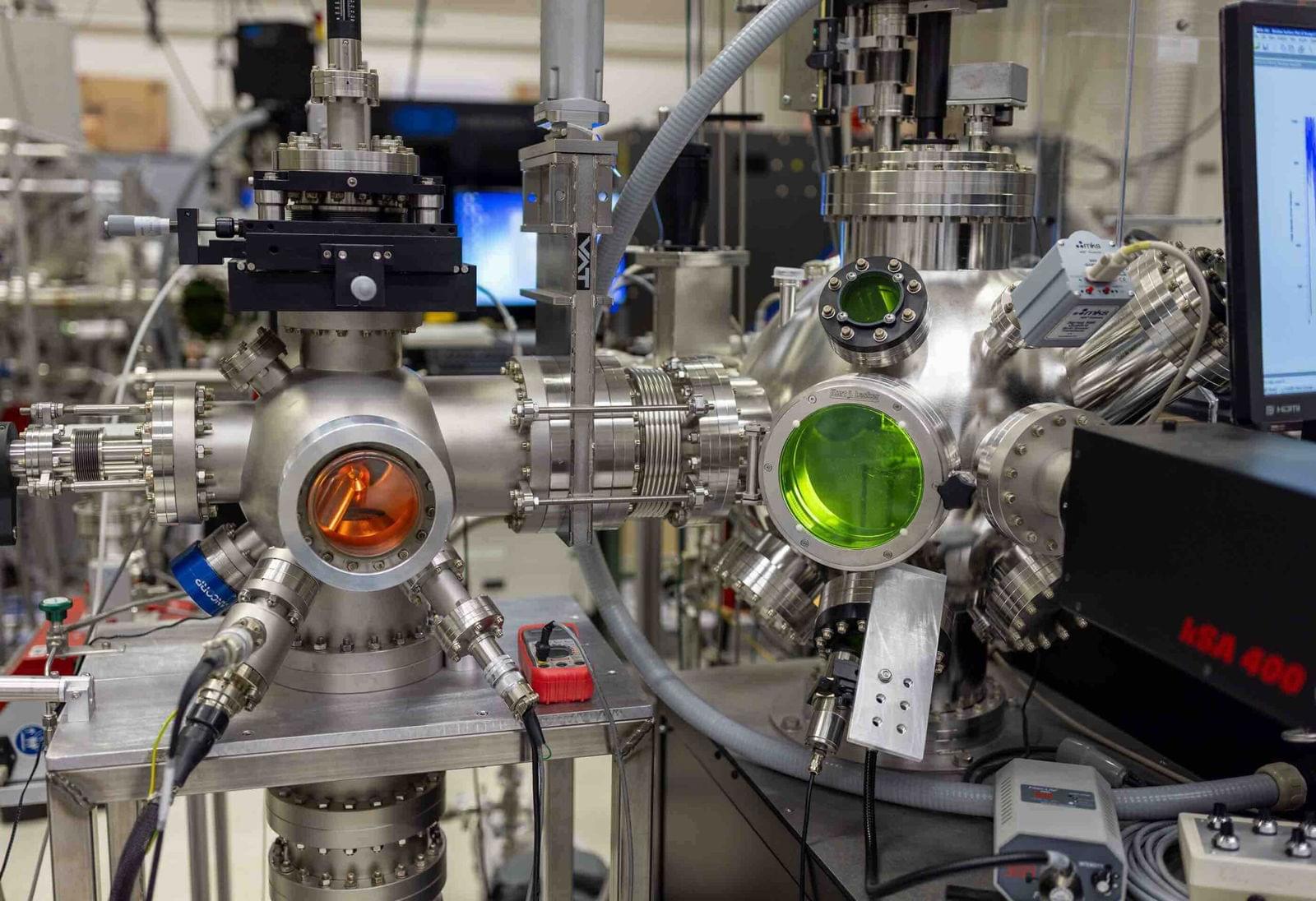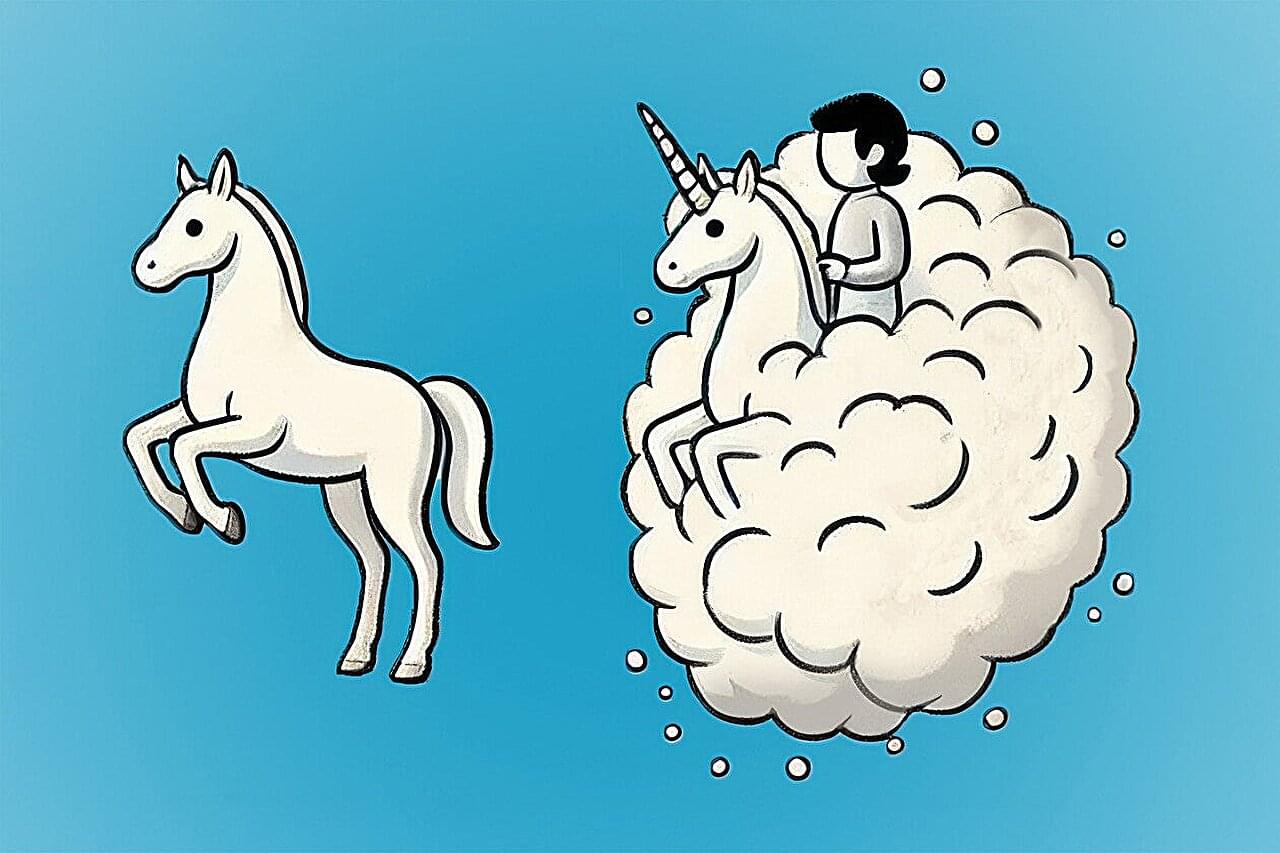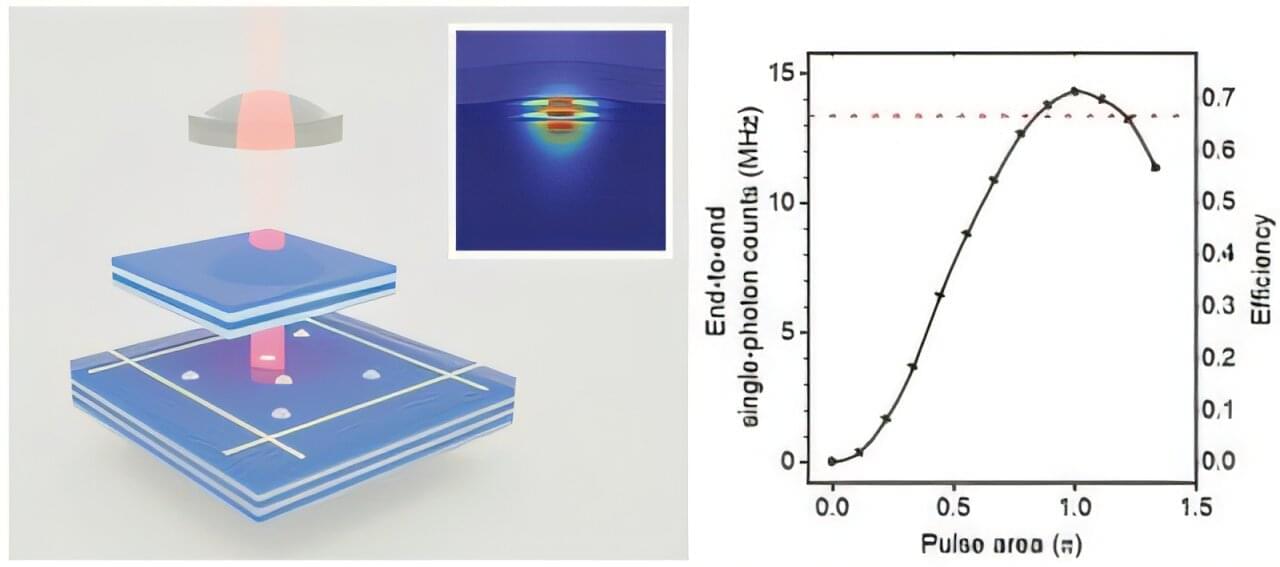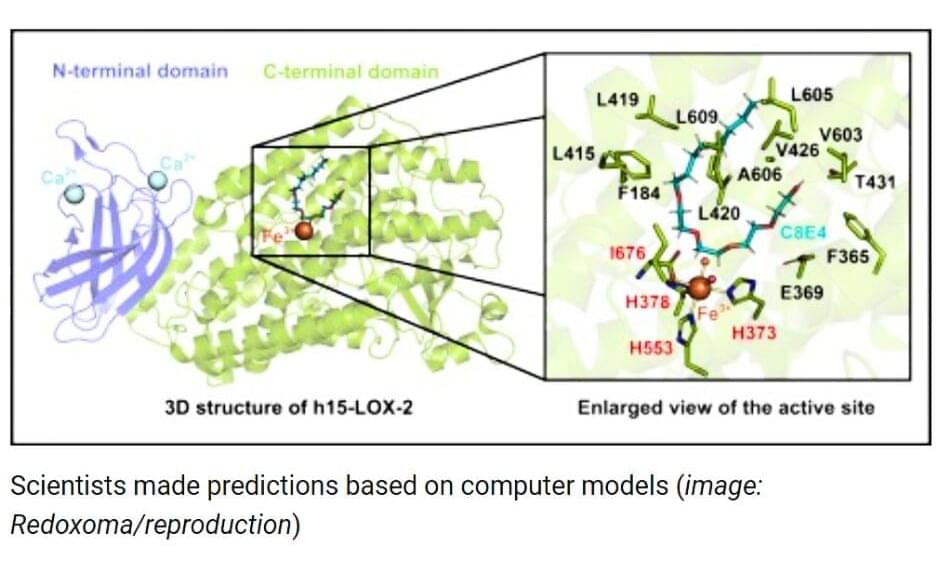An impossible quantum structure has now been fabricated, potentially leading the way to new developments in quantum computing.




For the better part of a century, the quantum objects known as quasiparticles have been all dressed up with nowhere to go. But that may change, now that a Yale-led team of physicists has shown it is possible to exert a greater level of control over at least one type of quasiparticle.
The discovery upends decades of fundamental science and may have wide applications for quantum-related research in the years ahead.
A quasiparticle is an “emergent” quantum object—a central, core particle surrounded by other particles that, together, demonstrate properties not found in each individual component. Quasiparticles have become the central conceptual picture by which scientists try to understand interacting quantum systems, including those that may be used in computing, sensors, and other devices.

Research teams from USTC have realized a high-performance single-photon source with an efficiency beyond the scalable linear optical quantum computing loss tolerance threshold for the first time. Led by Prof. Pan Jianwei, Lu Chaoyang and Hu Yongheng, the study was published in Nature Photonics on February 28.
Photons, as important carriers for quantum information processing, have the advantages of fast speed and strong resistance to environmental interference. However, for scalable linear optical quantum computing to be feasible, apart from the challenges like photons being easily lost, the efficiency of a single-photon source must exceed the tricky threshold of 2/3. Previous studies had never broken through this threshold, a key obstacle restricting the development of optical quantum computing.
To overcome this challenge, the research teams have developed a tunable open optical microcavity, achieving precise coupling of quantum dots and microcavities in both resonance frequency and spatial positioning. The microcavity solved the detuning problem of traditional fixed microcavities.

IN A NUTSHELL 🌍 China’s dominance in gallium production is reshaping global semiconductor and battery industries. ⚠️ Japan has raised alarms about the strategic implications of China’s control over critical resources like gallium, germanium, and antimony. 🔗 The U.S. sanctions against China have intensified competition for strategic raw materials, leading to trade tensions. 🏭 The
Register for member exclusives like early access to new content with a free Closer To Truth account: https://closertotruth.com/
Panpsychism is the theory that consciousness is irreducible and exists fundamentally at the foundations of reality. Panpsychism forms include ‘micropsychism,’ where fundamental particles or fields are in some sense conscious, and ‘Cosmopsychism,’ where the entire universe is in some sense conscious. What are the arguments for and against Panpsychism like the ‘combination problem’?
Closer To Truth is now on BlueSky! Follow us for updates, new videos, musings, and more: https://bsky.app/profile/closertotrut… Kastrup is a Brazilian-born Dutch philosopher and computer scientist best known for his work in the field of consciousness studies, particularly his development of analytic idealism, a form of metaphysical idealism grounded in the analytic philosophical tradition. Make a tax-deductible donation of any amount to help us continue exploring the world’s deepest questions: https://closertotruth.com/donate/ Closer To Truth, hosted by Robert Lawrence Kuhn, presents the world’s greatest thinkers exploring humanity’s deepest questions. Discover fundamental issues of existence. Engage new and diverse ways of thinking. Appreciate intense debates. Share your own opinions. Seek your own answers.
Bernardo Kastrup is a Brazilian-born Dutch philosopher and computer scientist best known for his work in the field of consciousness studies, particularly his development of analytic idealism, a form of metaphysical idealism grounded in the analytic philosophical tradition.
Make a tax-deductible donation of any amount to help us continue exploring the world’s deepest questions: https://closertotruth.com/donate/
Closer To Truth, hosted by Robert Lawrence Kuhn, presents the world’s greatest thinkers exploring humanity’s deepest questions. Discover fundamental issues of existence. Engage new and diverse ways of thinking. Appreciate intense debates. Share your own opinions. Seek your own answers.

Using computational tools and virtual screening, researchers at the Center for Redox Processes in Biomedicine (Redoxoma) have identified new inhibitors of the enzyme human 15-lipoxygenase-2 (h15-LOX-2). This protein plays an important role in inflammatory and metabolic processes and contributes to cellular homeostasis.
The discovery, described in the Journal of Medicinal Chemistry, could open up new avenues for investigating the biological and pathological functions of the enzyme and provide promising candidates for the development of new drugs.
“Although h15-LOX-2 is a potential biological target, it’s scarcely been explored for this purpose. Our work contributes to new inhibitors that have structural diversity among themselves and with respect to inhibitors already described in the literature. What’s more, they have similar drug properties according to predictions based on computational models,” says Lucas Gasparello Viviani, first author of the article.

On April 1, 2025, the Taiwanese manufacturer TSMC introduced the world’s most advanced microchip: the 2 nanometre (2nm) chip.
Mass production is expected for the second half of the year, and TSMC promises it will represent a major step forward in performance and efficiency – potentially reshaping the technological landscape.
Microchips are the foundation of modern technology, found in nearly all electronic devices, from electric toothbrushes and smartphones to laptops and household appliances. They are made by layering and etching materials like silicon to create microscopic circuits containing billions of transistors.
In this episode, we welcome Prof. Dr.-Ing. Maurits Ortmanns, a leading expert in ASIC design and professor at the University of Ulm, Germany. With a distinguished career in microelectronics, Dr. Ortmanns has contributed extensively to the development of integrated circuits for biomedical applications. He shares insights into the critical role of ASIC (Application-Specific Integrated Circuit) design in advancing neurotech implants, focusing on low-power, high-speed circuits that are essential for optimizing the performance and reliability of these devices. Dr. Ortmanns also discusses the challenges and future of circuit integration in neurotechnology.
Top 3 Takeaways:
“Each ASIC is very low in cost because the development cost is spread across millions of units. The actual production cost is minimal; the primary expense lies in the development time until the first chips are produced and ready for manufacturing.” “For an inexperienced engineer, it typically takes about six months to a year to design the blueprint for the chip. Then, depending on the manufacturer, it takes an additional four to six months for the actual fabrication of the ASIC. Finally, you would need another one to two months for testing, so the total turnaround time for a small chip is approximately one and a half years.” “Let’s take the example of a neuromodulator. You need recordings or data from neurons and stimulation data going to the neurons, so you essentially have these two components. Then, you encounter challenges like stimulation artifacts. One person might focus on eliminating the stimulation artifact in the recording channel. That requires additional algorithms or hardware, and the data needs to be digitized, which is another task. You may also have someone working on a compression algorithm and building digital circuitry to compress the raw input data. Then, there’s the data interface, power management, and wireless energy delivery. Each person works on their specific innovation, and if everything is well-planned and lucky, all these pieces can come together to create a complete system. However, sometimes you simply don’t have a breakthrough idea for power management or communication.” 0:45 Do you want to introduce yourself better than I just did?
3:15 What is integrated circuit design?
7:30 What are ASIC’s? How are they used in neurotech?
10:15 How does the million dollar fab cost get split into each chip?

Among the mountains of evidence that climate change is warming Earth faster than any other point in recorded history is the fact that most glaciers around the world are shrinking or disappearing. Melting glaciers and ice sheets are already the biggest contributors to global sea level rise, and according to the World Glacier Monitoring Service, ice loss rates have increased each decade since 1970. Yet, of the approximately 200,000 glaciers in the world currently, no database exists to identify which glaciers have disappeared, and when. The Global Land Ice Measurements from Space (GLIMS) initiative, an international project designed to monitor the world’s glaciers primarily using data from optical satellite instruments, aims to change that.
“Glaciers are indicators of climate change because they grow and shrink on longer timescales than rapidly changing weather, so they give a clearer signal about climate,” said Bruce Raup, a senior associate scientist at the National Snow and Ice Data Center (NSIDC) and director of the GLIMS initiative. “We know that glaciers are disappearing, but we’ve had no way to show that to people. So, we are making an effort to document glaciers that have disappeared and approximately when they disappeared.”